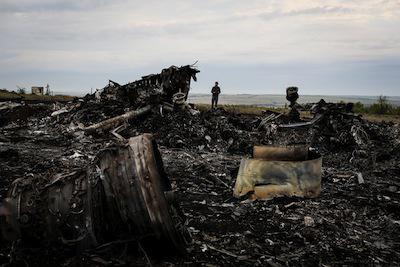
Who are we: Neurochemical man and emotional amoral egoism
It was Chekhov who said that, “Man will only become better when you make him see what he is like.” The levels of sophistication of science to date might not have managed to fully grasp ‘what man is like’ in neurobiological terms, yet Chekov’s instinct was sound: acquiring an accurate portrayal of human nature is a prerequisite for creating conditions that respect human dignity and morality. Attempts at moral education which fail to take into account fundamental neurochemical elements of human nature, are bound to prove unsuccessful. In some cases, these may even have undesired effects as they can lead to unreasonable expectations.

A citizen’s income and wealth fund for the UK: Lessons from Alaska
The idea of a ‘citizen’s income’ has made a real splash on the UK political agenda. The new year started with the Green party announcing a universal, non-means tested weekly payment of £72 to every British adult as its flagship economic policy, only to drop it this week from the party election manifesto after the programme’s costing failed to withstand rigorous scrutiny. Despite this step back, the citizen’s income idea may still feature in the election debate, given calls late last year by key Liberal Democrats for a universal basic income to become official party policy. And while the Greens have distanced themselves from the policy for the duration of the election, Green MP Caroline Lucas has identified the scheme as a long-term …

A preamble for a written constitution in the UK
Recently the Political and Constitutional Reform Committee ran an open public competition to find who can write the best Preamble – or introductory statement – for a modern Written Constitution for the UK. We are delighted to announce that Richard Elliot, a DPhil student at Jesus College, Oxford, was selected as winner in the public category. His Preamble reads, United, we stand in celebration of the diverse voices that make up the great chorus of our nation. Confident in our individuality, and steadfast in our shared values and common purpose, we—the citizens of the United Kingdom of Great Britain and Northern Ireland—have come together in the spirit of self-determination in order to establish the principles of our law and governance. By this …

Let the people speak! The state of devolution, decentralization and deliberation in UK politics
Democratic pressure is building, cracks and fault-lines are emerging and at some point the British political elite will have to let the people speak about where power should lie and how they should be governed. ‘Speak’ in this sense does not relate to the casting of votes — the General Election will not vent the pressure — but to a deeper form of democracy that facilitates both ‘democratic voice’ and ‘democratic listening’.
In the wake of the Scottish referendum on independence the UK is undergoing a rapid period of constitutional reflection and reform. The Smith Commission has set out a raft of new powers for the Scottish Parliament, the Chancellor of the Exchequer has signed a new devolution agreement with Greater Manchester Combined Authority, the Deputy Prime Minister has signed an agreement with Sheffield City Council, and the Cabinet Committee on Devolved Powers has reported on options for change in Westminster. One critical component of this frenetic period of reform has been the absence of any explicit or managed process for civic engagement even though the Prime Minister’s statement on the 19 September 2014 emphasized that ‘It is also important we have wider civic engagement about how to improve governance in our United Kingdom, including how to empower our great cities. And we will say more about this in the coming days’.
The days and months have passed but no plan for civic engagement has been announced.
In the meantime, calls for a citizen-led constitutional convention have been made with ever increasing regularity and volume.

Civilian Drones: fixing an image problem?
Drones were among the most popular Christmas gifts in 2014 — so popular, in fact, that British authorities warned recreational drone users to make sure to use their toys lawfully, or to expect hefty fines. Similarly, the US FAA released a video just before the holidays, teaching aspiring drone users how to “stay off the naughty list”. More and more people are becoming familiar with drones as the number of ‘hobby droners’ (yes, this is a term) grows. Businesses are discovering drones as well: drones carry mistletoe in restaurants (with questionable results), or are used to give real-estate buyers a better view of their property. Beyond this, hundreds if not thousands of commercial drone users are waiting in the wings for a few last technical details to be figured out (especially sense-and-avoid technology) and for the implementation of legal regulations allowing drones to share airspace with manned aircraft.
These developments are exciting, but they are also interesting for those working with military drones. The widespread use of drones for commercial purposes is likely to increase awareness about the history and the many applications of drones, which may help to overcome their exclusive association with targeted killings.

Tweets: What ought to be their evidentiary value and legal status under international law?
On 18 July 2014 the world awakened to yet another tragedy: the downing of the Malaysian Airlines flight HM17 over pro-Russian separatist territory of Ukraine, which in its horrendous totality shocked the collective conscience of the public. Claims of responsibility for the tragedy spread over the then innocuous social media portal, Twitter, and instantly internationalized what had been perceived as a largely domestic conflict. What gradually came into view was the deployment of Twitter as a propaganda tool and a means for nefarious communication, subject to virtual deletion and emendation for the purposes of advancing a military objective and a political cause. References to tweets and videos bearing an imprint of responsibility were invoked in the Security Council’s emergency meeting hours later, where the US Ambassador to the United Nations, Samantha Power, cited them in her impassioned speech.
This raises a legal conundrum, namely, what is the legal status of a boastful Twitter confession by separatist leaders of a state-sponsored rebel group containing first-hand accounts and admissions of responsibility for shooting down a plane in the midst of a conflict? Are tweets a novel form of incriminating evidence in a rapidly changing terrain of modern warfare? What ought to be their evidentiary value and legal status under international criminal law, international law of armed conflict and international humanitarian law? Finally, what criminal liability should those claiming responsibility bear under domestic and international law?

A ‘crowd sourced’ constitutional convention: initiative of the Institute of Welsh Affairs
Why wait for Westminster to grant you a Constitutional Convention?, Guardian columnist Simon Jenkins asked at the IWA’s conference a week before the Scottish referendum. “Hold your own one; decide what you want, and ask for it – you never know, at this time, you might just get it” the former Editor of The Times implored his audience. So that’s what we’re doing. On January 26th we’ll be launching the first ‘Crowd Sourced’ Constitutional Convention on the future of Wales, and the UK. Thanks to dozens of small donations from across Wales, and the support of the UK’s Changing Union project, we are able to launch an eight-week experiment in deliberative democracy to run in parallel with discussions at Westminster …

Should a codified UK constitution include reform or attempt to describe current arrangements
In approaching questions of constitutional change I have learned to be circumspect. It is now clear to me – as it was not even a few years ago – that it is entirely possible to find proponents for almost any constitutional position but virtually impossible to locate any argument that has thus far succeeded in triggering principled reform. To say this is not to deny the existence of constitutional change or even reform. The history of New Labour from 1997 continuing through the Brown administration and on into the present Coalition is testament to the shifting of several – some might say rather too many – constitutional tectonic plates. But the shifting of constitutional tectonic plates either randomly or, more …









